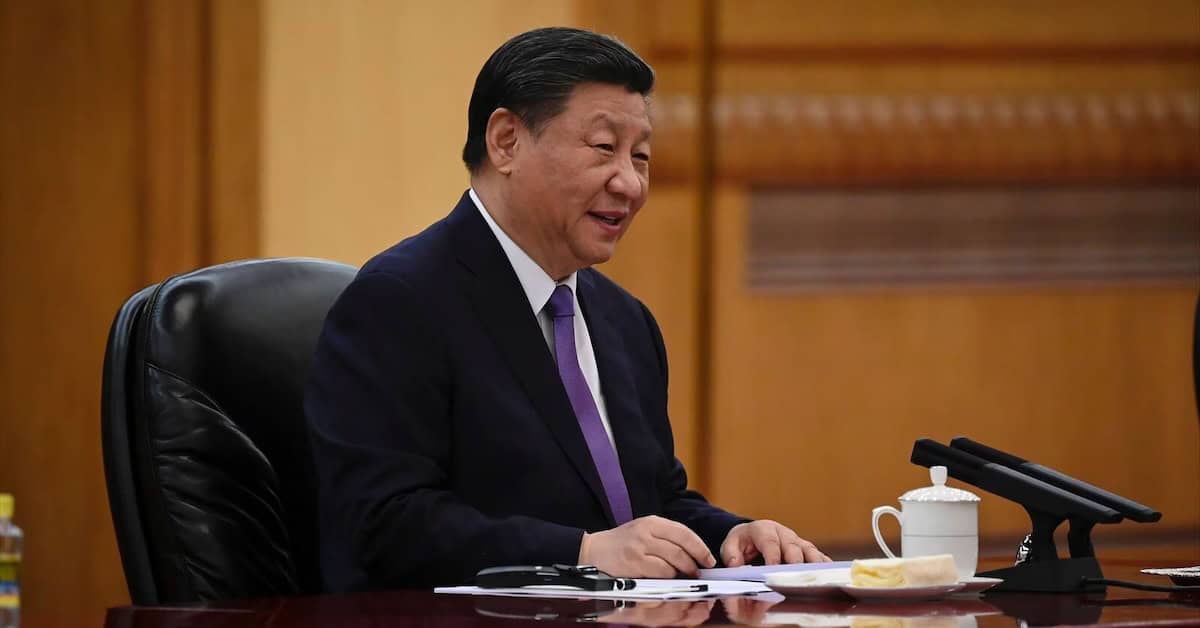America’s foes and friends alike have good reasons to judge Afghanistan’s abandonment both in terms of its global terrorist consequences and what it reveals about the Biden administration’s worldwide objectives, capabilities, and resolve.
Our adversaries are certain to be viewing the debacle from a perspective of ways to exploit obvious U.S. leadership weakness and consequential geopolitical realignment leveraging opportunities.
Consequentially, allies are legitimately reassessing whether the U.S. can continue to be trusted as a reliable and competent strategic defense partner.
Beijing wasted no time taunting Taiwan regarding false hopes that the U.S. could be counted on to stand strong for them.
A Chinese Communist Party-controlled tabloid Global Times editorial warned, “Such a war would mean unthinkable costs for the U.S. in front of which the so-called special importance of Taiwan is nothing but wishful thinking.”
The White House originally pitched its quick Afghan pullout strategy as a shift of priority focus to Asia, where Beijing has been aggressively bolstering its Communist military and economic influence.
Instead, Biden’s Afghan imbroglio has opened new Beijing opportunities: shoring up its interests in Afghanistan, protecting against the spread of Islamic terror into China, and increasing efforts to establish hegemony along its periphery, especially regarding Taiwan, the South China Sea, and India.
Afghanistan chaos has particularly jolted our East Asia allies, particularly Taiwan – but also Japan (America’s largest permanent overseas military deployment of about 50,000 troops) who rely upon U.S. backing to resist China’s rising power and regional influence.
On one hand, Beijing is happy to see a weakened and shamed U.S. chased out of an area in its backyard. On the other, the U.S. exit also poses unfavorable Afghanistan instability risks that can blowback on them.
The Chinese Communist regime has long feared that Afghanistan could become an abasing location for Uyghur militants to launch attacks into their far-west Xinjiang region.
Another instability concern is that jihad militancy could spill over into neighboring Pakistan and other Central Asian states where the Chinese regime has invested heavily through its Belt and Road infrastructure plan.
In addition, Beijing is known to have an interest in acquiring vast supplies of Afghan rare earth minerals for its energy projects. Militant instability will interfere with getting them out of the ground.
China is entirely capable of stirring up lots of local trouble of its own, such as sales of ballistic missiles and nuclear technology to Pakistan and support for North Korea’s apparent decision to restart operations at its Yongbyon nuclear reactor.
Joe Biden was badly mistaken if he imagined that Vladimir Putin would reward him for generously dropping Donald Trump’s sanctions that now enable Russia to complete construction of its Baltic Nord Stream 2 natural gas pipeline to Germany.
Even before Biden’s Afghan debacle, Putin flatly refused a request last June to allow the U.S. to establish air bases in five Kremlin-controlled Central Asian states adjacent to land-locked Afghanistan … Kazakhstan, Kyrgyz Republic, Turkmenistan, Tajikistan, and Uzbekistan.
That Russian rebuff compounded a strategic disaster that occurred when the White House inexplicably ordered our military to abandon the large Bagram Air Base 45 miles north of Kabul. The fateful decision left behind a vital evacuation option and only remaining situational awareness facility for monitoring Taliban, al Qaeda, and ISIS operations.
As with China, Russia wants to avoid seeing Afghanistan instability, with a primary mission to ensure that Taliban and other radical Islamic activities don’t cross back over the northern Afghanistan border into those five states – especially Uzbekistan – which has now been forced into a higher degree of reliance on Moscow for security support.
Weak Western responses in support of tens of thousands of protestors who rose up against the fraudulent reelection of President Aleksander Lukashenko, the brutal and erratic ruler of Belarus, also bound that country’s ties more closely to an emboldened Russia.
Dangerously nuclear, Pakistan was one of the first countries to give a high-five to Afghanistan following America’s turn-tail defeat. Prime Minister Imran Khan congratulated the Taliban for having “broken the shackles of slavery.”
Although the U.S. has based Central Asia war-on-terror operations from Pakistan over the past two decades, Islamabad plays both sides in its own regional power games.
Pakistani intelligence services seek Afghan Taliban collaboration as the best vehicle to frustrate competing objectives of their greatest rival, India.
Indian officials who supported the U.S.-backed government in Kabul warn that the Taliban’s return will again make Pakistan a haven for terrorists. Such authorities are particularly concerned about security in the disputed region of Jammu and Kashmir, where a heavily militarized line of control has separated India and Pakistan since 1947.
The two countries have long accused each other of supporting terror groups: Jaish-e-Mohammed and Lash-e-Taiba blamed by India for attacks on Kashmir; and Baloch separatists and violent jihadists cited by Pakistan.
Tehran mullahs are also cheering the Taliban victory as evidence of White House impotence as Biden negotiators desperately pursue renewal of the 2015 “Iran nuclear deal.”
Iran and China, both of which border Afghanistan, have made it clear that they intend to work with the Taliban government.
Iran, China, and Russia have announced plans for joint naval drills in the Persian Gulf this year or early next year.
Iran is also China’s oil supplier of choice and Russia’s Middle East partner in bolstering Syria’s Bashar al Assad regime. In addition, Tehran serves as a leading sponsor for terrorism throughout that volatile region.
Meanwhile, America’s ill-conceived and disastrously executed Afghan exit ignored pleadings of G-7 leaders to stay sufficiently long to enable evacuation of their citizens and thousands of Afghans who have supported NATO forces over the past two decades.
Yes, the U.S. Afghanistan retreat has provided dangerous reasons for adversaries and allies to distrust America’s resolve or competence as a world leader.
Tragically, those recent misgivings are demonstrably justified.
























